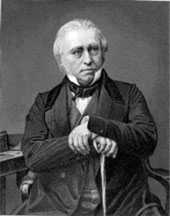Let's banish false reverence for books!
 Writing between the lines is quite different from reading between the
lines. Unfortunately, even most adults do not know the value of writing
between the lines. However, it is not a novel concept. Celebrated
historian Lord Macaulay used to annotate all the books he read. He left
question marks, crispy notes such as “rubbish”, and his own thoughts on
the subject on every page he read. Writing between the lines is quite different from reading between the
lines. Unfortunately, even most adults do not know the value of writing
between the lines. However, it is not a novel concept. Celebrated
historian Lord Macaulay used to annotate all the books he read. He left
question marks, crispy notes such as “rubbish”, and his own thoughts on
the subject on every page he read.
Some parents and even teachers do not encourage children to write
anything in the textbooks. This may be due to the fact that textbooks
are given free by the Government and they have to be returned to the
school authorities for redistribution.
Act of love
If you own the book, making notes on its pages is not an act of
mutilation or vandalism. It is an admirable act of love for knowledge.
Students should be encouraged to underline difficult words, mark
important passages and highlight memorable phrases. They will gradually
learn the art of having a dialogue with the author while reading the
book. Readers have every right to question the author or disagree with
his point of view. After all, they are also human.
Martin Wickramasinghe used to annotate his books profusely. Being a
self-taught man, Wickramasinghe used to copy the dictionary meaning of
difficult words and leave his own comments on the margin. By doing so,
he learnt many subjects easily and developed a logical mind.
Annotation is not possible if you are bringing home books from the
public library. Librarians and friends who lend books do not expect you
to make notes on them. Those who really love books make it a point to
buy them. This is for the sole purpose of reading them at leisure and
leaving your thoughts in them. There are many national and international
organisations that provide information about books available in the
market.
 |
|
Lord Macaulay annotated all the books
he read |
We can buy any number of books at a bookshop. When we buy them we
become their legal owners. However, to become their real owners, we
should read, mark and digest them. When you write between the lines, the
book becomes a part of yourself. This is similar to the pair of
spectacles or the shoes you wear.
A simple illustration will suffice to drive home the point. You can
buy a cup of yoghurt and keep it in the refrigerator. As you have paid
the purchase price you become its proud owner. However, until you
consume the cup of yoghurt, it will not become a part of yourself. What
is more, just like the yoghurt, the books you buy too should be absorbed
in your bloodstream to do you any good!
Bibliophiles
Some parents and teachers have a false reverence for books. They
respect books so much that they preserve them in a locked cupboard. A
large number of important books can be seen in private libraries without
being read by anybody. The owners of such libraries appear to be
bibliophiles who simply collect books without any desire to read them.
Anybody who maintains a fine private library in immaculate condition
may not be a person who has a mind enriched by books. The library proves
nothing more than that he was rich enough to buy a whole heap of books
only to display them like a piece of furniture.
There seems to be three types of book owners. The first type of
owners have all the books they want, but they remain untouched and
unread. It is questionable whether they are the real owners of the
books. The second category of book owners has many books on their
shelves. They have read some of them, but most of the books remain
untouched. Such people have a great reverence for books, but they fail
to benefit from the wealth of knowledge embedded in the printed pages.
Soul of books
If you walk into a private library where all the books are dog-eared
and annotated, the person who bought the books really owns them. There
is nothing wrong in annotating any book whether it is written by William
Shakespeare, Dante or Bertrand Russell.
The only exception to the rule appears to be books on paintings. Here
the paintings are the soul of the book and they should not be separated
from the body. Paintings do not need annotation and they are there to be
admired, appreciated and preserved.
When you write between the lines, you keep yourself awake and
attentive during the reading session. On the other hand, annotation
helps you to think critically on the subject. The margins of the pages
allow you to leave your thoughts for future reference. Another benefit
is that writing helps you to remember what you read. The written word
has a direct link with the brain that immediately registers it. If you
simply run your eyes along the printed words, you tend to forget what
you read.
You can read fiction without the hassle of annotation. However, you
cannot read great books such as Edward Feser's Philosophy of Mind or
Daniel Goleman's Social Intelligence without annotating the pages. So
long as you think that marking a book is a literary offence, you will
never benefit from reading!
|

